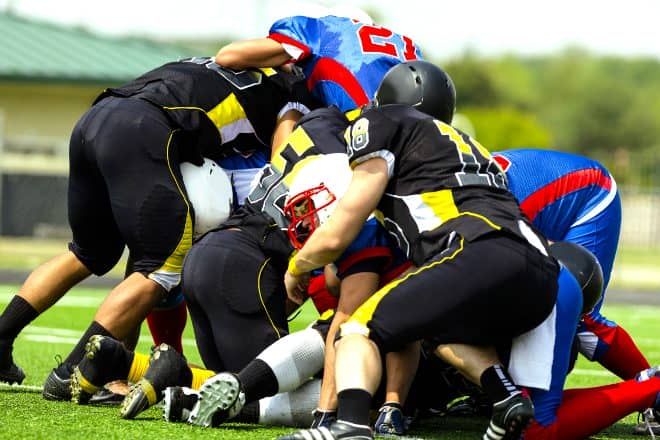
It’s every parent’s nightmare. The school calls, telling you your child was injured during football or lacrosse practice and has been taken by ambulance to the nearest hospital.
As you rush across town, adrenaline surging, you hope it’s not as bad as you imagine. Your child’s safety is all you can focus on.
Later, however, when the child is on the mend, a different nightmare sets in: piles of medical bills, rehab appointments, days you can’t afford to take off from work. The long-term effects of the accident could haunt you and your child for years to come.
And you can’t help but wonder — Is there anything the school might have done to have prevented this from happening?
When Can I Sue the School for Negligence?
The concept of sovereign immunity grants state, county, and town agencies broad — but not total — immunity from lawsuits. It also imposes stricter regulations on those who do file suit. In Wisconsin, for instance, you must notify the government in writing within 120 days of the event that caused the injury. If you don’t meet this time limit, you typically cannot file a claim.
Public schools districts, which are considered a local government municipality, typically fall under sovereign immunity, making it more difficult not only to file suit but to prevail in court. Sovereign immunity also places limits on the amount you can recover even if you win a case.
Sometimes sovereign immunity is not the only obstacle to recovery. Government officials also enjoy discretionary immunity. In other words, to win a case, an injured person must prove that a government official violated a “ministerial duty.” In other words, if the government official was allowed discretion in how he or she performed her duties, an injured person is barred from recovery.
Nevertheless, there are some instances when you can sue a school.
Premise Liability
This is a fancy way of saying that the school contributed to your child’s injury by creating an onsite hazard, such as a puddle or sidewalk crack, that caused the accident and subsequent injury to take place. Plaintiffs often use premise liability to file suit against private homes and businesses. However, due to sovereign immunity, the bar could be higher in the case of a school district. You might not be able to sue unless you can prove gross contributory negligence.
Professional Standard of Care
Far more often, successful civil lawsuits brought again schools focus on lapses in the “professional standard of care.” Society holds school officials, teachers, and coaches to a higher level of care than the “reasonable” standard it applies to individuals in private life. A school employee must perform their supervisory duties as well as any other person with the same level of education, experience, and training; otherwise, the court can find them negligent.
Was Your Child Injured Playing High School Sports?
Sometimes accidents are no one’s fault. But when negligence contributes to your child’s injury, the Wisconsin attorneys at GCW are on the case. Our team of skilled, compassionate lawyers will treat you with the utmost respect while working diligently to get you the settlement your family needs to move forward. Contact us for a free consultation to see if you can sue your child’s school for contributory negligence.




